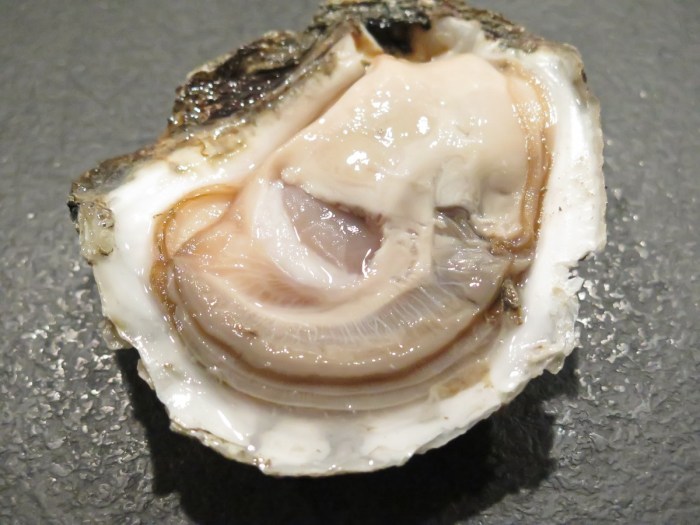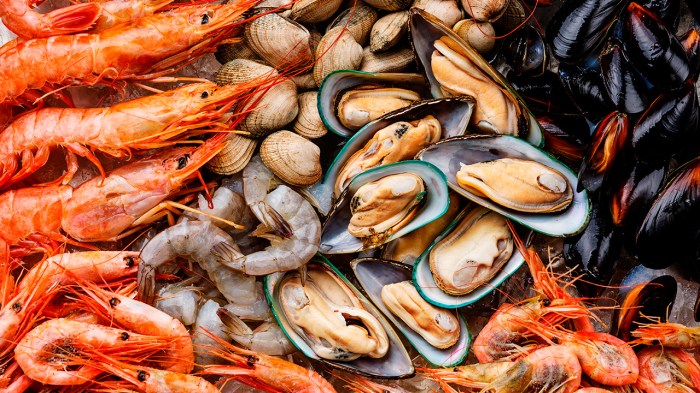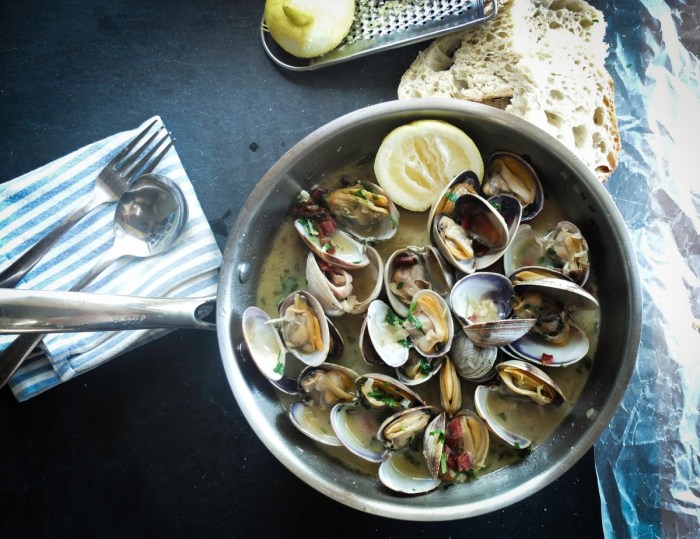What food should a guest with a shellstock allergy avoid – Individuals with a shellfish allergy must exercise caution when dining to avoid severe reactions. This article provides a comprehensive guide to the foods that should be avoided, highlighting the potential risks and offering safe alternatives.
Shellfish Allergy: Symptoms and Severity
Shellfish allergies are a common type of food allergy that can cause a range of symptoms. The most common symptoms include:
- Hives
- Swelling of the face, lips, tongue, or throat
- Difficulty breathing
- Nausea and vomiting
- Diarrhea
In severe cases, a shellfish allergy can lead to anaphylaxis, a life-threatening allergic reaction that requires immediate medical attention.
Types of Shellfish to Avoid

Individuals with a shellfish allergy should avoid all types of shellfish, including:
Mollusks
- Clams
- Oysters
- Mussels
- Scallops
- Squid
Crustaceans
- Shrimp
- Lobster
- Crab
- Crayfish
Other, What food should a guest with a shellstock allergy avoid
- Abalone
- Barnacles
- Conch
Hidden Shellfish Ingredients

Shellfish can be hidden in a variety of foods, including:
- Fish sauce
- Oyster sauce
- Shrimp paste
- Surimi
- Bouillabaisse
It is important to read food labels carefully to identify any hidden shellfish ingredients.
Cross-Contamination Risks: What Food Should A Guest With A Shellstock Allergy Avoid

Cross-contamination can occur when shellfish allergens are transferred from one food to another through shared utensils, surfaces, or cooking equipment. This can be a particular risk in restaurants or other food preparation settings where shellfish is handled.
Safe Food Options
Individuals with a shellfish allergy can safely eat a variety of foods, including:
- Meat
- Poultry
- Eggs
- Dairy products
- Fruits
- Vegetables
Emergency Management

In the event of an allergic reaction to shellfish, it is important to:
- Seek immediate medical attention
- Use an epinephrine auto-injector if one is available
- Avoid any further contact with shellfish
Quick FAQs
What are the most common shellfish to avoid?
Mollusks (clams, oysters, mussels), crustaceans (shrimp, lobster, crab), and other shellfish (squid, octopus, conch)
How can I identify hidden shellfish ingredients?
Read food labels carefully for words like “shellfish,” “crustaceans,” “mollusks,” and derivatives like “fish sauce” or “shrimp paste.”
What are some safe food options for individuals with a shellfish allergy?
Meat, poultry, eggs, dairy, fruits, vegetables, and grains that do not contain shellfish or shellfish derivatives